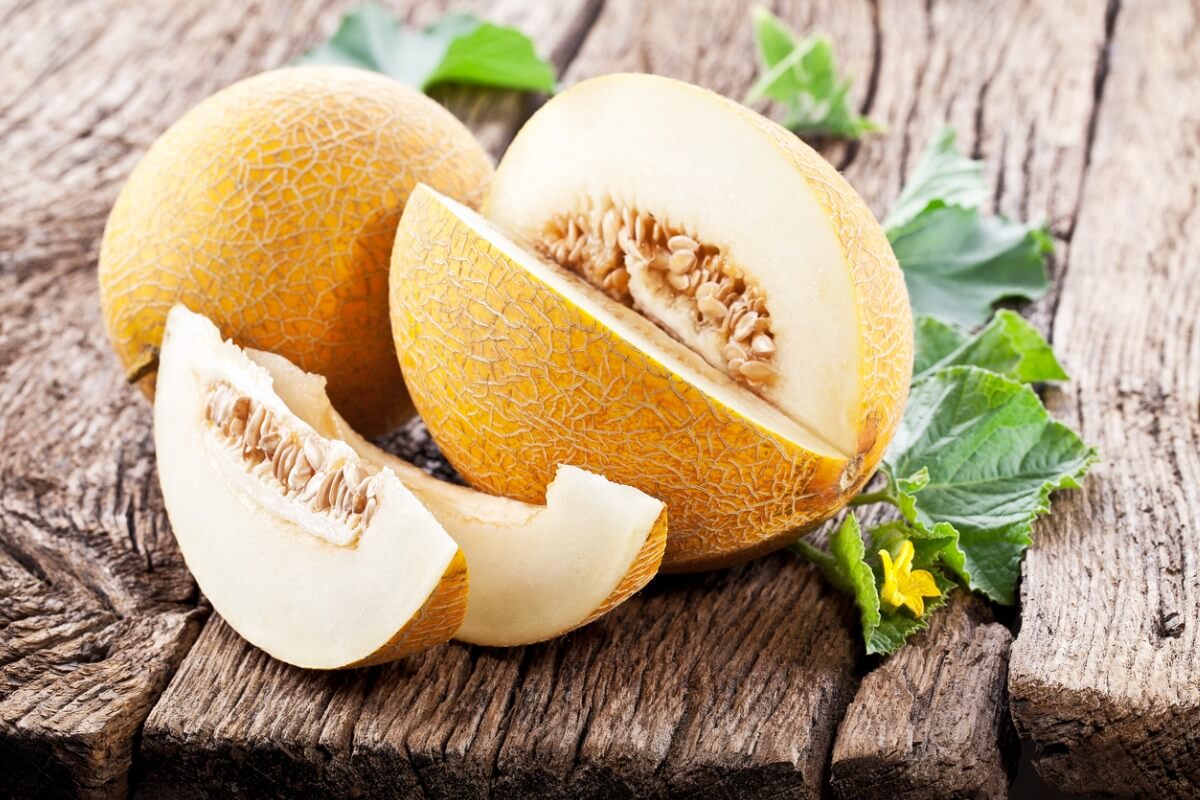Can Dogs Eat Melon?
Can dogs eat melon? That's the question we'll consider in the following article!

It’s common for owners to wonder if their dogs can eat the different types of melon, taking into account the cooling properties and rich flavor of this fruit. The truth is that dogs can consume many different fruits and vegetables in moderate doses. After all, we mustn’t forget that we’re talking about facultative carnivorous animals, whose diet must have a greater intake of animal protein.
Specifically, in this article, we’re going to answer the question of whether dogs can (or not) eat melon. In addition, if they can, we’ll tell you the appropriate doses and how you should offer it to them. Can dogs eat melon? Read on and find out!
Can dogs eat melon?
In recent years, owners have become aware of the importance of offering a balanced diet to their dogs. Many have even opted for more holistic and innovative alternatives (such as the BARF diet).
According to certain articles, this type of diet seeks to offer canines nutrients like those they would eat in the wild. Therefore, they propose to provide a variety of fresh and natural foods, taking into account that it has been shown that dogs eat (in addition to meat) berries, fruits, vegetables, and plants.
Now, the answer to the question of whether dogs can eat melon is a resounding yes. This fruit has a high water content which can help to hydrate your pet. However, there’s a lot more we need to tell you about the topic, so keep reading and discover why you should include this fruit in your dog’s diet.
The nutritional composition of melon
Melons (Cucumis melo) come from a herbaceous plant that belongs to the cucurbit family. It’s composed of 92% water and only 6% is sugar, which makes this a fruit with a fairly low energy content.
For every 100 grams (4 oz) of melon consumed, the following nutrients are obtained:
- Energy: 28 kilocalories
- Proteins: 0.6 grams
- Carbohydrates: 6 grams
- Fiber: 1 gram
- Calcium: 14 milligrams
- Iron: 0.4 milligrams
- Magnesium: 17 milligrams
- Sodium: 14 milligrams
- Potassium: 320 milligrams
- Phosphorus: 18 milligrams
- Vitamin C: 25 grams
- Vitamin A: 3 micrograms

The benefits of melon for dogs
By eating melon, dogs obtain the benefits of its components. According to the nutritional information, this fruit is rich in vitamin C, an essential micronutrient for the proper functioning of the body. As dogs can’t produce it by themselves, it must be included in their diets.
Vitamin C is involved in such important processes as the formation of muscles, blood vessels, bones and teeth. In addition, it’s essential for proper iron absorption and proper healing to occur. As scientific articles explain, this vitamin has antioxidant properties that fight the effects of free radicals, reducing oxidative damage.
The following are other notable benefits of offering melon to dogs:
- Hydration: Having a high water content, feeding dogs melon keeps them hydrated and helps them avoid urinary infections, as it also has diuretic and purifying properties.
- Digestion: Melon also has a good concentration of fiber, so its consumption improves intestinal transit, helping to prevent stomach discomfort (such as constipation).
- Immune system: The vitamin C contained in this fruit strengthens a dog’s immune system.
- Skin health: Its antioxidant properties help the dog’s skin to remain healthy and strong. This will help to prevent chronic skin problems (such as allergic dermatitis).
How to offer melon to a dog?
While dogs are allowed to eat melon, the owner must ensure that the seeds and rind are removed. Although these components have no side effects, they’re the hardest parts and can cause choking or digestive problems if the dog is very small.
The first time you offer melon to your dog, do it with a small portion. If you notice that they like it a lot, don’t get excited or overdo it and check how they get on with it. Stop giving it if you can see that they have diarrhea or discomfort after consuming the fruit.
Offer the slices chopped into squares so the dog can easily chew on them. You have the option of giving him the fruit alone or mixed with the other foods that you offer them in their meals. Another possibility is to stimulate the pet with an interactive toy in which they have to remove the fruit themselves.
Melon portions for dogs
Although feeding your dogs melon is a great idea, you have to be careful with how much you offer them. Like most fruits, this one has a good concentration of fructose, a type of sugar that can be harmful if consumed in excess. Among the health problems that appear due to high sugar intake are excess weight, obesity and diabetes.
Now, regarding the exact amount of melon that dogs can eat, there are no specific guidelines. It should be calculated according to the weight and health of each dog. However, it isn’t recommended to provide more than 4 servings a day to the dog (or to offer the food daily).
It’s best to administer this fruit on the hottest days to supplement the water intake. It’s also a good idea to offer it as a reward, especially when following a specific training plan.

Dogs can eat any type of melon, whether it’s traditional, honeydew, Chinese, or any other type. They all contain nutrients and properties that are healthy for dogs. If your dog enjoys eating this fruit, include it in their diet. If, on the other hand, the dog doesn’t show any interest, it’s best not to force the issue, and to try them with other fruits or vegetables that are suitable for them.

